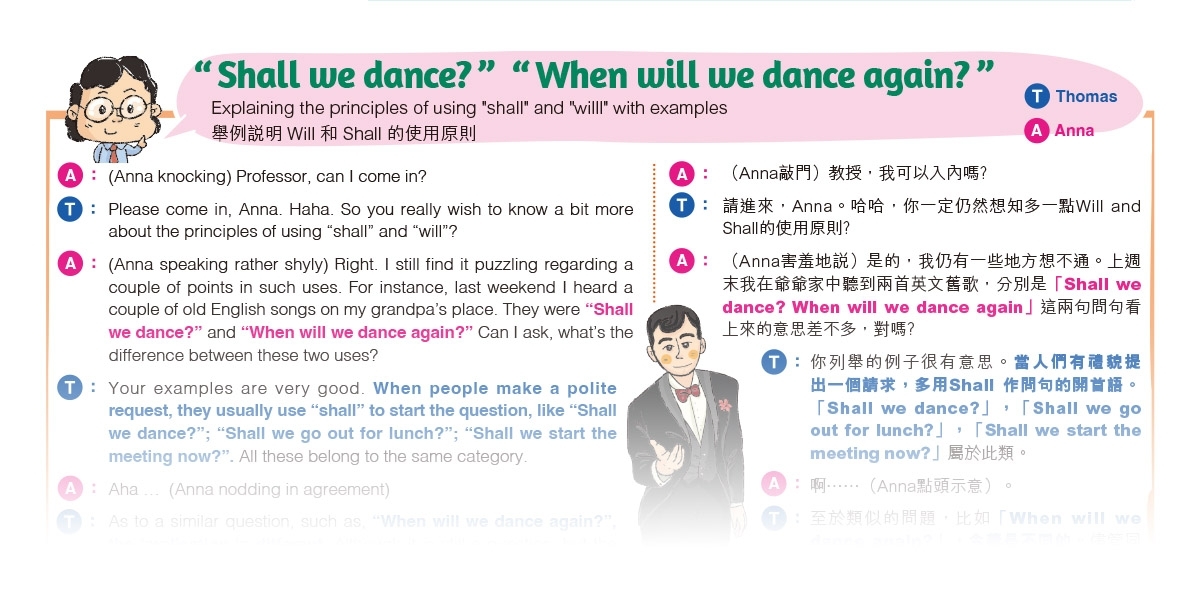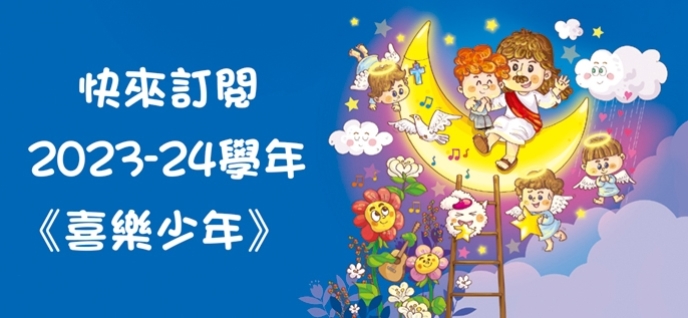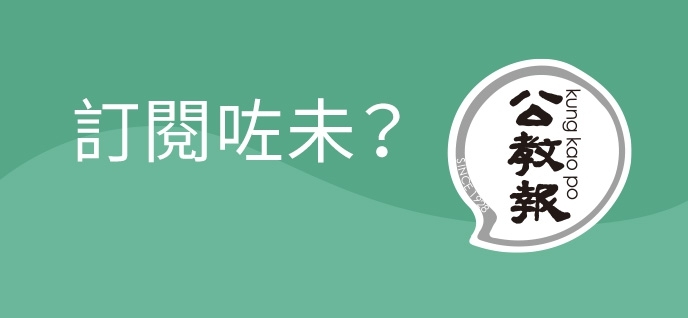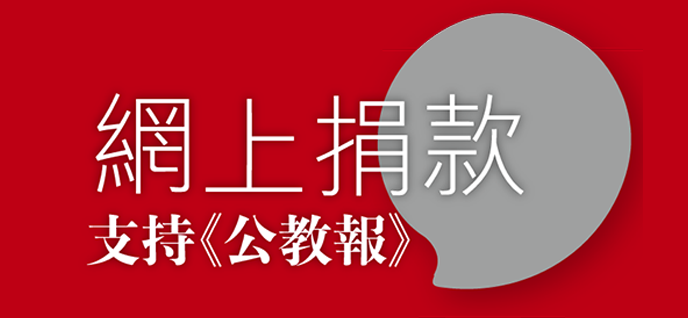
“ Shall we dance? ” “ When will we dance again? ”
Explaining the principles of using "shall" and "willl" with examples
舉例說明Will 和 Shall 的使用原則
T: Thomas, A: Anna
A: (Anna knocking) Professor, can I come in?
T: Please come in, Anna. Haha. So you really wish to know a bit more about the principles of using “shall” and “will”?
A: (Anna speaking rather shyly) Right. I still find it puzzling regarding a couple of points in such uses. For instance, last weekend I heard a couple of old English songs on my grandpa’s place. They were “Shall we dance?” and “When will we dance again?” Can I ask, what’s the difference between these two uses?
T: Your examples are very good. When people make a polite request, they usually use “shall” to start the question, like “Shall we dance?”; “Shall we go out for lunch?”; “Shall we start the meeting now?”. All these belong to the same category.
A: Aha … (Anna nodding in agreement)
T: As to a similar question, such as, “When will we dance again?”, the implication is different. Although it is still a question, but the point is that the asker is expressing clearly his or her intention of inviting the other party to dance. What is more, he or she is quite confident that the dance will materialize.
A: I see. There can be connotation about it in such uses. I can see that I still need to spend more time to learn English better. (Thomas smiling in place of speaking again)
A: (Anna敲門)教授,我可以入內嗎﹖
T: 請進來,Anna。哈哈,你一定仍然想知多一點Will and Shall的使用原則﹖
A: (Anna害羞地說)是的,我仍有一些地方想不通。上週末我在爺爺家中聽到兩首英文舊歌,分別是「Shall we dance? When will we dance again」這兩句問句看上來的意思差不多,對嗎﹖
T: 你列舉的例子很有意思。當人們有禮貌提出一個請求,多用Shall 作問句的開首語。「Shall we dance?」,「Shall we go out for lunch?」,「Shall we start the meeting now?」屬於此類。
A: 啊⋯⋯(Anna點頭示意)。
T: 至於類似的問題,比如「When will we dance again?」,含義是不同的。儘管同樣是問句,不過其重點想表明提問者想邀請對方再次共舞的意圖,且胸有成竹對方會答允其請求。
T: 原來是有弦外之音,看來我還要花多一點時間學好英文文法。(Thomas笑而不語)






